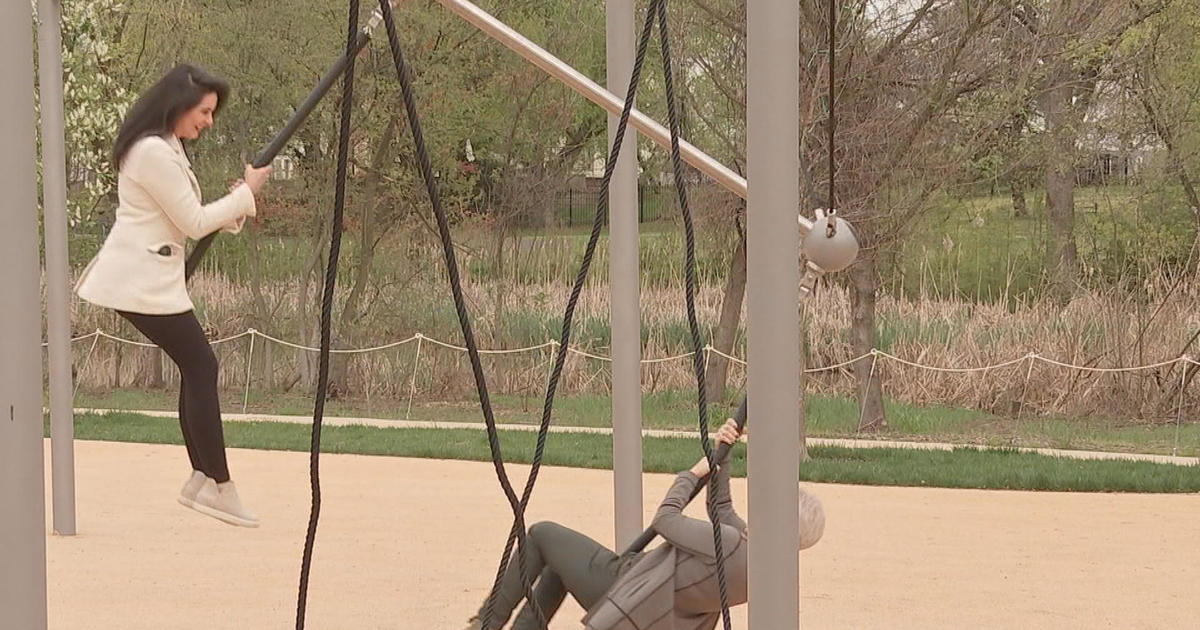Angie's List: Replacing Pipes In Your Home
By Jim Donovan
PHILADELPHIA (CBS) - We don't usually think about our home's plumbing until a pipe bursts, but you may want to ward off trouble before it starts. In this week's Angie's List report, Jim Donovan has a look at some thing you should consider when it
comes to the pipes in your home.
Obviously you have no choice but to replace a broken pipe, but you don't have to wait for something to go wrong to consider changing your pipes.
"One of the best times to check the pipes in your house is when you are remodeling your kitchen or bathroom because at that point you'll likely have the floors and the walls exposed so it will be very easy to check," said Angie's List founder, Angie Hicks.
But if you're not renovating, how do you know it's time for a change?
"One symptom is loss of pressure and also you can start to see what we call stalactites or corrosion around fittings that would be another indication that it is time for piping replacement. Also, if you have a home that was built in the 50's or 60's and it still has all original piping I would certainly recommend it being inspected," said plumber, Lance Smith.
If do decide you need new pipes, talk to your plumber about material options and ask them to explain the pros and cons of each.
"When discussing what types of pipes to install in your house with a plumber ask them questions such as: How long will the pipes last? How will it be installed? And even how energy efficient they are?," said Hicks.
More from Angie:
Common plumbing materials:
· Copper: Most widely used, but more costly than plastic pipe. Long history of reliability, has an average life of about 50 years. Copper takes the most time and skill for installation. Prone to burst following a freeze.
· CPVC (Chlorinated polyvinyl chloride): A common plastic piping that is easy to install and inexpensive, but can be brittle and crack as soon as it freezes.
· PEX (Cross-linked polyethylene): Alternative for areas too small or tight for copper and CPVC pipes. Quick and easy to install and lightweight and flexible. Verdict is still out on how long it will last - has only been used for about 10 years.
*The different pipe types can all be connected together, in the event just a section of the pipe needs replaced.
Angie's List Tips:
· Hire a reputable plumber: When hiring a plumber, especially for an expensive project, make sure the plumber you hire is fully qualified and licensed in your state. Get at least three written estimates from three different plumbers for your job.
Ask questions: To ensure the piping system is the right fit, ask the plumber a few questions such as: What material options · are best for my situation? How will it be installed? How long will the piping last? Are some systems more energy efficient that others? What are the costs? How long is the warranty?
· Are you certified? Plumbers working with PEX should be certified by the product manufacturer. Should the product not be installed in accordance with the manufacturer's installation instructions, the warranty could be voided.
· Check local code: Codes specify which plumbing pipe and fitting materials are approved and codes vary depending on where you live.
· Is it time to replace your pipes? A few warning signs include a loss of water pressure or corrosion around fittings. Get an inspection if your home was built in the 50's or 60's and still has all original piping. Whenever you have walls and floors exposed (for example, during a kitchen or bathroom remodel) have your pipes inspected.



